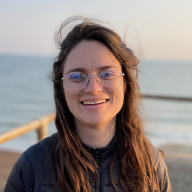
Luisa_Rodriguez
Bio
Luisa Rodriguez is research analyst at 80,000 Hours. Previously, she researched civilisational collapse at the Forethought Foundation for Global Priorities Research, and nuclear war at Rethink Priorities and as a visiting researcher at the Future of Humanity Institute. Before that, she conducted cost-effectiveness evaluations of nonprofit and government programs at ImpactMatters, Innovations for Poverty Action, and GiveWell (as a summer intern).
Posts 17
Comments24
Thanks so much for sharing this. It’s really heartbreaking to hear that someone’s encounter with the community was so painful and costly. I can relate to EA making my life worse in some ways, though I’m fortunate to have found a way to keep EA in my life in a way that’s healthier now. I’m trying to do more to support people who struggle with similar experiences, in part by doing things like the interview in this post.
80k does have some articles on the site that we think could be helpful to people in a similar position to the person who wrote that response. We address issues like how you can have an impact in any job, why personal fit for your career is so important, and why we think it’s helpful to not treat impartial impact as the only goal in life (a bunch of related ideas here, here, and here). But I’d love to find ways to do more to make sure the people who need to hear those messages are actually exposed to them — it’s clearly the case that some people’s experiences in the EA community, and the pressure they feel to have an impact, can be really dispiriting (again, this has definitely been the case for me). I’ll continue to look for opportunities to talk about these things on the podcast, but if people have other ideas for how to support people with these kinds of experiences, I’d love to hear them (and I know my colleagues would as well).
Yea, good question. It's basically because I started with NHS psychiatrists (who strongly prefer to prescribe SSRIs), and only later moved to a private psychiatrist (who recommended I start first with agomelatine because of the excellent side effect profile, given that side effects were my main complaint).
I tracked my mood and thought patterns in a few different ways:
- I use Daylio to track my overall mood once a day and I have 2 years worth of data there.
- I use the GAD9 and PHQ-7 to track my depression and anxiety scores once every week. I have 3 years worth of data from that.
- I use perfectionism and low self esteem questionnaires to track those things once a month. Data for those for about 2 years
Perhaps you approached these tests as mostly about finding one that didn't have acute side-effects, and also wasn't obviously not working?
Yea, I basically did this ^^
It was just extremely obvious to me when something was working/wasn't, and the fact that many antidepressants I was super optimistic about didn't work makes me think I wasn't getting huge placebo issues.
While self-reported data is obviously a bit tricky, my sense of whether something was/wasn't working was backed up by the data I collected.
- I use Daylio to track my overall mood once a day and I have 2 years worth of data there.
- I use the GAD9 and PHQ-7 to track my depression and anxiety scores once every week. I have 3 years worth of data from that.
- I use perfectionism and low self esteem questionnaires to track those things once a month. Data for those for about 2 years
Hi Dan, I’m Luisa — I’ve been helping EA-aligned organizations find candidates for their open roles as part of my work at 80,000 Hours. I think there’s a good chance one of the direct outreach emails you’ve seen at IDinsight came from me, so I thought it’d be good to share a bit more about what kinds of headhunting we’re doing, and how we’re thinking about it.
Briefly, 80,000 Hours is sometimes asked by hiring managers at EA-aligned orgs to recommend potential candidates for specific roles. Given we get to know lots of EA-aligned people through our programs, we think we’re pretty well-placed to help talented people find out about impactful roles they might be a good fit for (that they might not have been aware of otherwise).
This does sometimes include reaching out to people who already have jobs — sometimes at EA-aligned (and adjacent) organizations — to find out if they’re open to other roles, and if so, put some roles we think are especially impactful on their radar.
We hope that the fact that we don’t have the same financial incentives as normal headhunters (who are paid when they get placements) means we’re able to act as a neutral-ish third party trying to think about which roles are extra-worth putting on more people’s radars.
We recognize that there are potential downsides, like increasing costs to organizations that spend a year training a new hire, only to have that person leave for another org soon once they’ve skilled up. And we absolutely don’t endorse pushing people harder on switching jobs than they would endorse, or in any way misleading people.
We hope this means we’re able to help create a better-working talent pipeline for orgs doing high-impact work, while minimizing the costs to orgs doing great work (like IDinsight!)

Good point! Added a few!